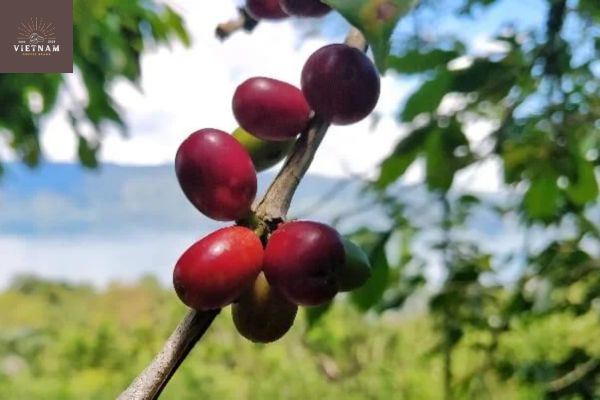Hey there, coffee enthusiasts! If you’re on the hunt for a unique and exceptional coffee experience, then let me introduce you to Obata Coffee, a hybrid sub-variety that hails from Central America.
Obata Coffee is a unique blend that embodies the essence of understanding Marsellesa coffee, with its rich flavors and velvety texture.
Developed by the Sao Paulo State Agriculture Institute in Brazil and later imported to Costa Rica, Obata Coffee combines the best of Timor and Villa Sarchi coffee varieties.
What sets Obata Coffee apart is not only its exceptional flavor profile, but also its resistance to leaf rust, making it a resilient and reliable choice for coffee growers.
Cultivated in the Alajuela region of Costa Rica by the Volcan Azul coffee estate, this variety offers a balanced acidity, with citrus and chocolate notes that will tantalize your taste buds. Its sweet fragrance, creamy texture, and lengthy finish further enhance the overall coffee experience.
So, if you’re ready to embark on a coffee journey like no other, keep reading to discover the characteristics, benefits, and the full experience that Obata Coffee has to offer. Trust me, this is one variety you don’t want to miss out on.
Key Takeaways
- This is a hybrid of Timor and Villa Sarchi coffee varieties, grown in Central America.
- It is known for its outstanding flavor properties and resistance to leaf rust.
- It is grown in the Volcan Azul coffee estate in Costa Rican Alajuela region, supervised by Don Alejo Castro.
- It offers a unique and exceptional taste with notes of citrus, chocolate, and a creamy texture.
What is Obata Coffee?

Obata coffee is a distinct varietal that stems from the understanding of Sarchimor coffee, combining the best traits of Timor Hybrid and Villa Sarchi cultivars, resulting in a remarkable balance of flavor, resilience, and adaptability.
Obata Coffee is a hybrid variety of coffee that was developed in Brazil and later imported to Costa Rica in 2014. It is known for its balanced acidity, citrus and chocolate notes, and exceptional taste.
The origin of this coffee can be traced back to the Sao Paulo State Agriculture Institute in Brazil, where it was created by crossing the Timor and Villa Sarchi coffee varieties.
In terms of cultivation techniques, Obata Coffee thrives in the Alajuela region of Costa Rica, which has a suitable climate and volcanic soil that favors its growth. It is also resistant to leaf rust, making it a popular choice among coffee farmers.
Overall, it offers a unique and exceptional taste experience, making it a must-try for coffee lovers seeking new flavors and aromas.
Characteristics and Flavor Profile

I really enjoy the unique characteristics and flavor profile of this coffee. It is known for its sweet fragrance, citric acidity, creamy body, and notes of milk chocolate and caramel. The clean and balanced taste of this coffee makes it a delightful choice for coffee lovers.
Obata coffee thrives in the Central American region, particularly in Costa Rica. It is cultivated in the Alajuela region, which provides suitable growing conditions for this variety. Obata coffee favors volcanic soil, and its cultivation techniques have been perfected over the years.
When comparing this coffee with other popular coffee varieties, it stands out for its exceptional flavor properties. Its balanced acidity, citrus notes, and chocolate undertones set it apart from the rest. The creamy texture and lengthy finish further enhance the overall drinking experience. If you’re seeking new tastes and experiences, I highly recommend trying this coffee.
Benefits and Experience

One of the benefits of experiencing this unique coffee is its resistance to leaf rust, high yield, and exceptional taste. Obata coffee, being a hybrid variety, brings together the best qualities of its parent varieties – Timor and Villa Sarchi.
This results in a coffee that not only thrives in the Central American climate, particularly in Costa Rica’s Alajuela region, but also offers a range of flavors and aromas that are truly remarkable.
Here are some key benefits and characteristics of Obata coffee:
- Resistant to leaf rust, ensuring healthy and productive crops
- High yield and good harvests, contributing to the success of coffee estates like Volcan Azul
- Offers a unique and exceptional taste, with notes of milk chocolate, caramel, and a creamy body
- Provides a memorable drinking experience, with its balanced acidity and sweet fragrance
- Highly recommended for coffee lovers seeking new tastes and experiences
When you choose Obata coffee, you’re not just getting a delicious cup of coffee, but a truly unique taste experience that will leave a lasting impression.
Frequently Asked Questions
Conclusion
In conclusion, Obata Coffee is a truly remarkable variety that coffee enthusiasts should definitely try. Its unique blend of Timor and Villa Sarchi coffee varieties results in a flavor profile that is both distinctive and exceptional.
With its resistance to leaf rust and its cultivation in the Alajuela region of Costa Rica, Obata Coffee offers a flavor experience like no other. Its balanced acidity, citrus and chocolate notes, sweet fragrance, creamy texture, and lengthy finish all contribute to a truly delightful cup of coffee.
For those seeking new and exciting flavors, Obata Coffee is definitely worth exploring.






